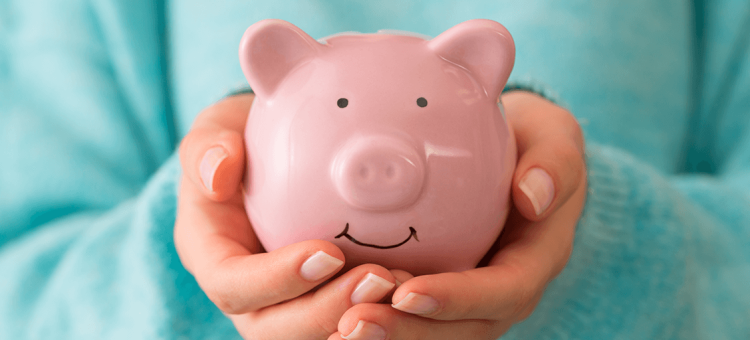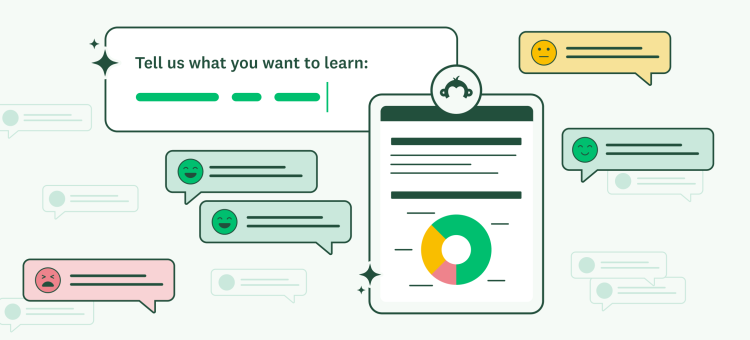Are you planning an event? Bravo! You must be good at juggling swords, balancing checkbooks, conducting an orchestra, and somehow maintaining a cool demeanor without spilling coffee on your shirt. Hats off to you event planners—you have one of the most challenging jobs around.
Here at Guidebook, we work with thousands of creative, tech-savvy, dedicated event planners every month. We spoke with a group of pros to find out the crucial questions you must ask throughout the research and planning process around planning an event. Here they are, along with free checklists and resources.
1. Project your attendance with a survey
An event planning survey is the right tool for gathering intel before you begin planning and spending. While you can’t rely on a survey’s results to perfectly predict how your event will go, you can get a lot of helpful information early on.
For example, use this Event Planning Survey Template to find out how many people are coming to your event. This survey will help you calculate your potential audience universe, then figure out the number of likely attendees.
For example, let’s take a look at your target audience.
Your target audience is the number of people who could attend your conference. If you’re holding a conference for professionally active San Francisco dentists, your target audience is the number of active dentists you can reach in San Francisco. (Keep in mind that if you can’t reach someone—by emailing them, calling them or otherwise marketing to them to make them aware of your event—you won’t be able to count them in your audience.)
In our example, there are 800 dentists in your audience.
The number of likely attendees:
This is the percent of relevant San Francisco dentists who say they would like to attend your conference. You can find this out by sending a survey to a statistically significant portion (sample size calculator) of your audience.
In our dental conference example, you might email a description of your proposed event to 300 dentists. Be sure to include details to help them decide. Dates, cost, accommodations, schedule, speakers. Ask: “Will you be attending this event?”
If 20% of your 300-dentist sample size say they will attend, you can make the loose assumption that 20% of the dentists in San Francisco are likely to attend.
“My company does a lot of upfront research to determine buy-in,” says Romy Yan from PRIME, a full-service events agency in Vancouver. Romy is an eleven-year veteran of the events industry.” An accurate attendance projection will help to avoid a lot of problems down the line.”
Accurate attendance numbers will also allow you to set goals that are aggressive but attainable, and to manage your budget successfully.
(Speaking of your budget, we wrote the ebook on event budgeting—grab it for free to learn a lot more.)
2. Drive the event’s direction
Send your audience and pre-event survey before you nail down the event’s details. Ask them what they would like to learn. There are three major benefits to asking questions before you plan:
- You’ll be able to create custom content for your audience.
- Your conference idea will be catapulted in your audience’s collective consciousness long before you even send the save-the-date!
- Establishing that your organization is flexible and open to attendee feedback goes a long way toward building those warm relationships that will make your event a hit.
You’re limited in the volume of questions you can ask without exhausting your influence, so focus on the elements that will critically drive the event’s direction.
- In which city should the event be held?
- What do you think of these potential keynote speakers?
Greg Jenkins from Bravo Productions is a planner with more than 25 years of experience. He suggests you use your survey to troubleshoot based on the audience’s previous experience:
- If you have attended previous or similar conferences, what worked? What didn’t work?
- Where do you see the industry going? Any noticeable trends to share?
- What do you hope to get out of attending the event (and be specific)?
Once the event is live, you can assess how attendees are feeling and make dynamic decisions using an in-app survey. For all the details, read about how planners like you are using real-time conference surveys to get valuable feedback on the fly!
3. Plan for post-event feedback
If you’re trying to get a group of people to become more knowledgeable about a topic or about your brand/cause, you can ask questions now to generate a baseline of pre-event awareness.
Brand recognition: This goal is defined as the percent within a specific target market (in this case, it may be your audience universe as a whole) who can name your brand. You can measure this by surveying your audience before and after the event.
Brand awareness: If you need to measure awareness of a more specific topic—for example, to make sure a primary message was understood at the event—set goals for a post-event survey that measures how attendees synthesized the information shared.
4. Ask questions to simplify logistics
We’re often asked if we think a conference or event can go completely paperless by using a mobile app instead of a printed agenda. (The other option is to supplement the app with a smaller number of printed programs.)
For plenty of events the answer is a resounding “Yes!”—and it can save you a lot of money while helping the environment.
Not all planners have the confidence to entirely remove printing without the blessing of all participants. So ask your audience in your pre-event survey! You’ll get an idea of how many people expect the old-school printed program.
Once you get some feedback, refer to this article on how you can cut out event printing costs and go properly paperless.
Other logistics you can straighten out with a pre-event survey? Why don’t you ask how many people are planning to drive, which can determine how much parking you need to reserve? Learning people’s travel plans can inform the number of airport shuttles needed.
5. Keep asking
So you want to build a strong relationship with your attendees? Ask them for feedback and support throughout the process and seriously consider what they say. It’s the key to building a dedicated audience.
If you’re looking for more event planning help, read on: Romy from PRIME and four other fantastic, professional event planners give you their best event planning tips.

Anna Sawyer is Director of Product and Content Marketing at Guidebook, a Palo Alto-based company that develops mobile event apps and venue guides for conferences, universities, and corporate meetings. Their award-winning software allows anyone to make and launch an app in minutes without any technical skills.
Guidebook also publishes expert-driven resources and runs a lively blog for event pros. See their roundups of valuable tools for events and their exhaustive list of essential event planning blogs for a taste!





